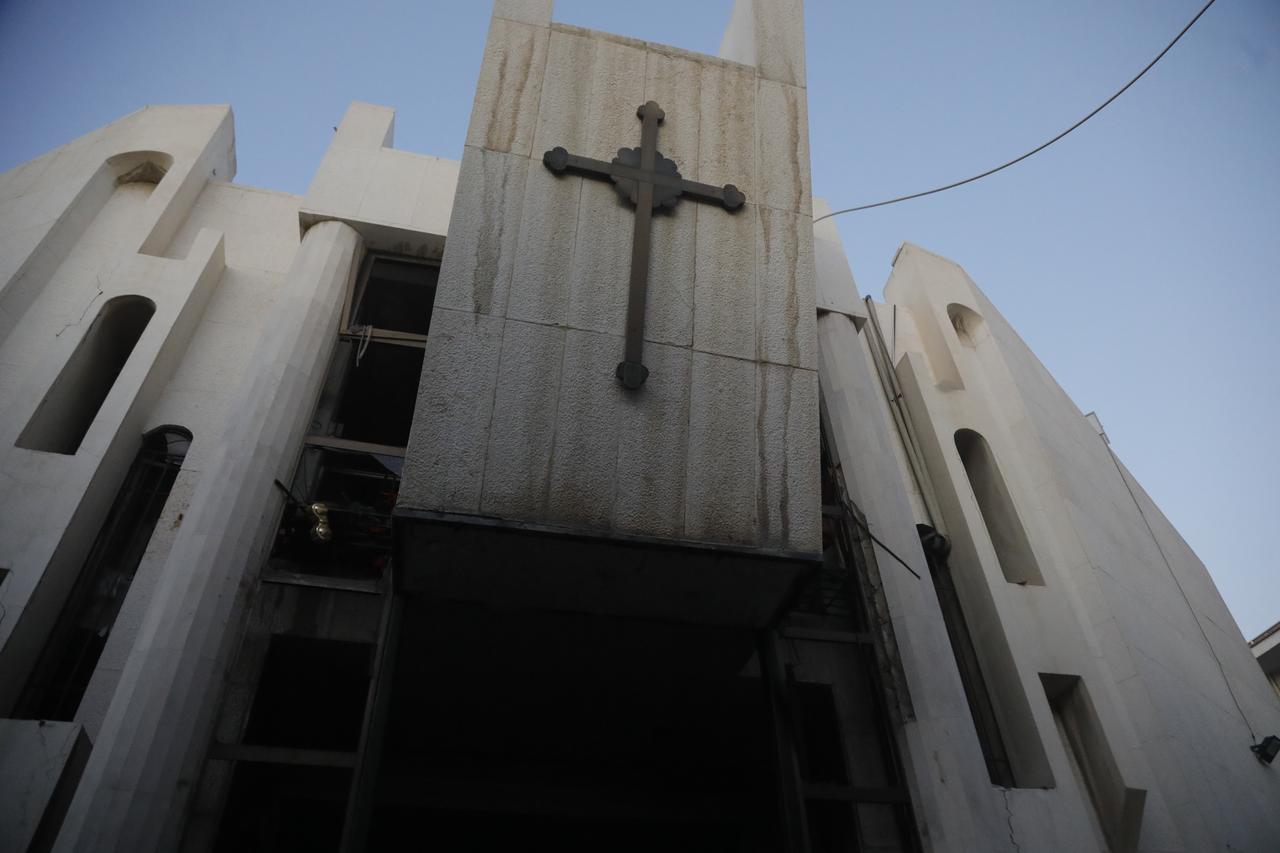
The extremist group Saraya Ansar al-Sunna claimed responsibility for a suicide bombing at St. Elias Church outside Damascus that killed 25 people, while Syrian authorities announced the arrest of a Daesh cell leader and disruption of a planned second attack, marking a significant escalation in sectarian violence targeting Syria's religious minorities.
At a Tuesday evening press conference, Interior Ministry spokesperson Nour al-Din al-Baba announced that Syrian security forces had arrested all members of the terrorist Daesh cell responsible for the weekend bombing.
"Syrian security units in Damascus' countryside carried out an operation targeting the locations of the terrorist cell that carried out the bombing of Mar Elias Church in the al-Dweilaa neighborhood," al-Baba stated.
The spokesperson emphasized that "the cell is linked to Daesh and has no connection to any religious organization," directly contradicting claims by Saraya Ansar al-Sunna.
Terrorist organizations may see such attacks as a tool for their propaganda and claim ownership even if they did not carry out the attack.
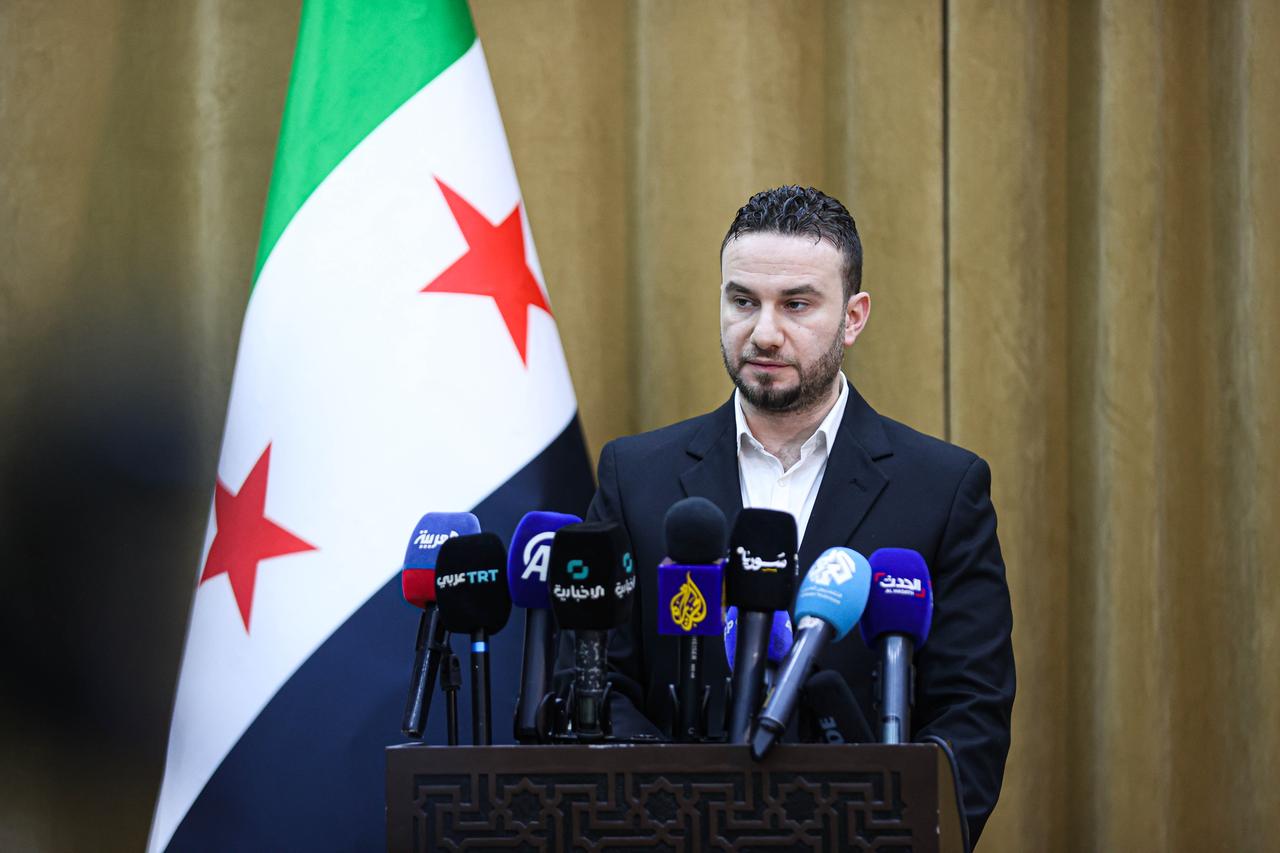
The cell is led by Syrian national Mohammed Abdul Ilah al-Jumaily, known as Abu Imad al-Jumaily, a resident of the Hajar al-Aswad area in Damascus who was previously known as the "Desert Governor" within terrorist organization Daesh.
Al-Baba described Daesh as a "cross-border terrorist group," adding that Syria is cooperating with neighboring countries to combat the organization.
The attack killed at least 25 people and injured dozens when the suicide bomber opened fire inside the church before detonating explosives, according to the Syrian Health Ministry.
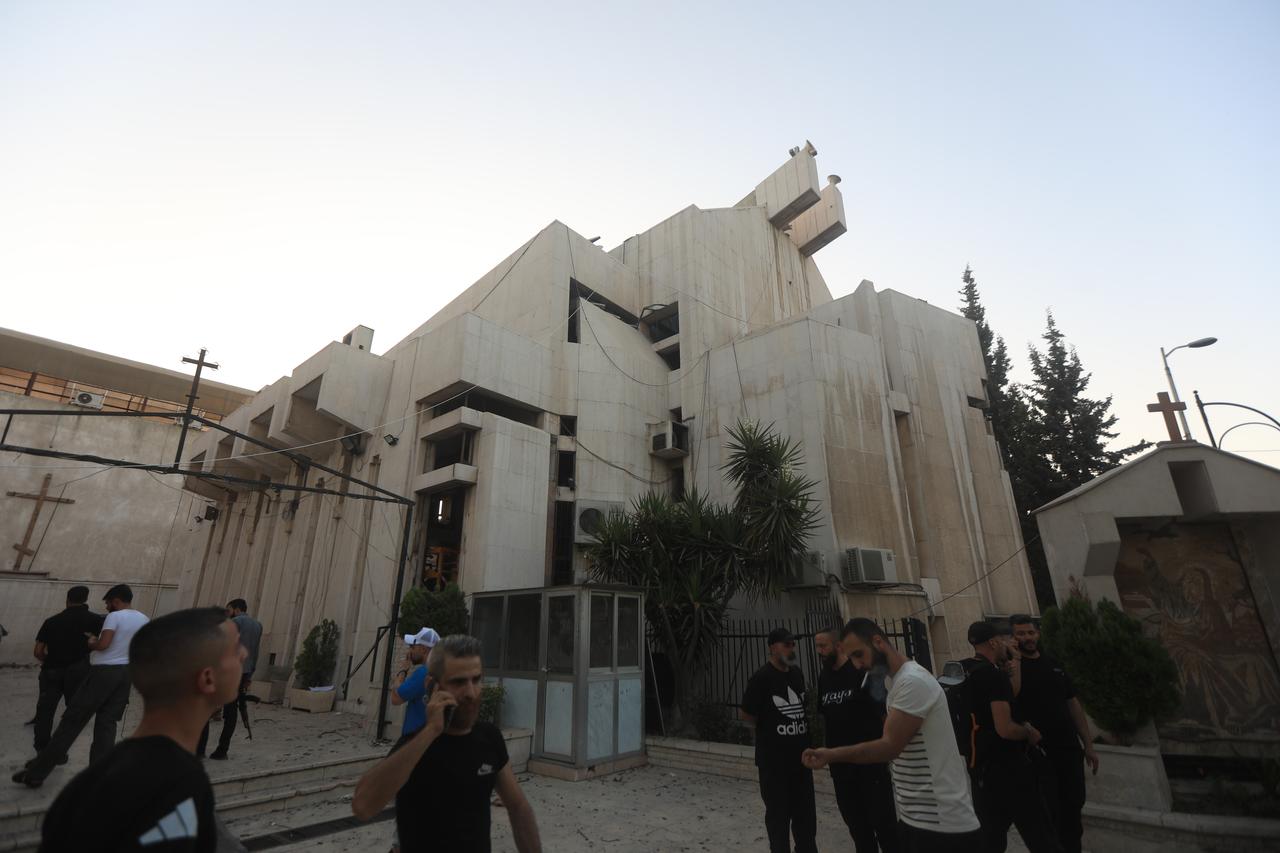
The two suicide bombers involved in the plot were non-Syrian nationals who arrived in Damascus from al-Hol camp via the Syrian desert, infiltrating after the capital's liberation with assistance from Abu Imad al-Jumaily.
Al-Baba confirmed they "infiltrated after the capital was liberated with the help of Abu Imad al-Jumaily, taking advantage of the security vacuum at the start of the liberation" in December. "They are not Syrians," he emphasized.
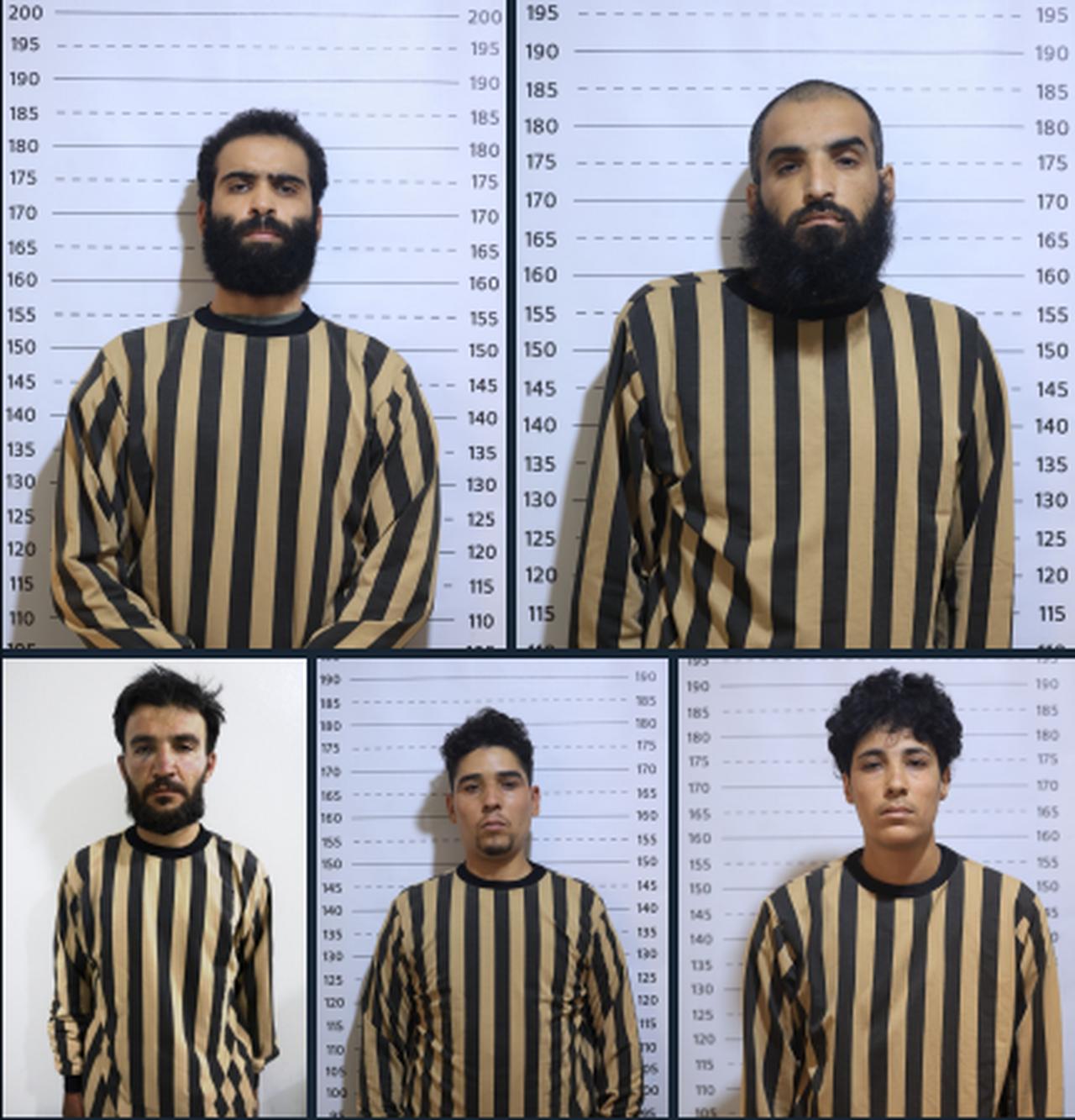
Authorities prevented a planned suicide bombing at the Sayyida Zeinab shrine in Damascus countryside, arresting the second bomber and confiscating a motorcycle prepared for detonation in civilian gatherings within the capital.
The ministry revealed that security forces identified the cell through field intelligence sources combined with available technical evidence, leading to identification of a suspect who transported the first suicide bomber to the church.
Syrian security forces from the Interior Ministry moved to arrest him, discovering another person present during the operation.
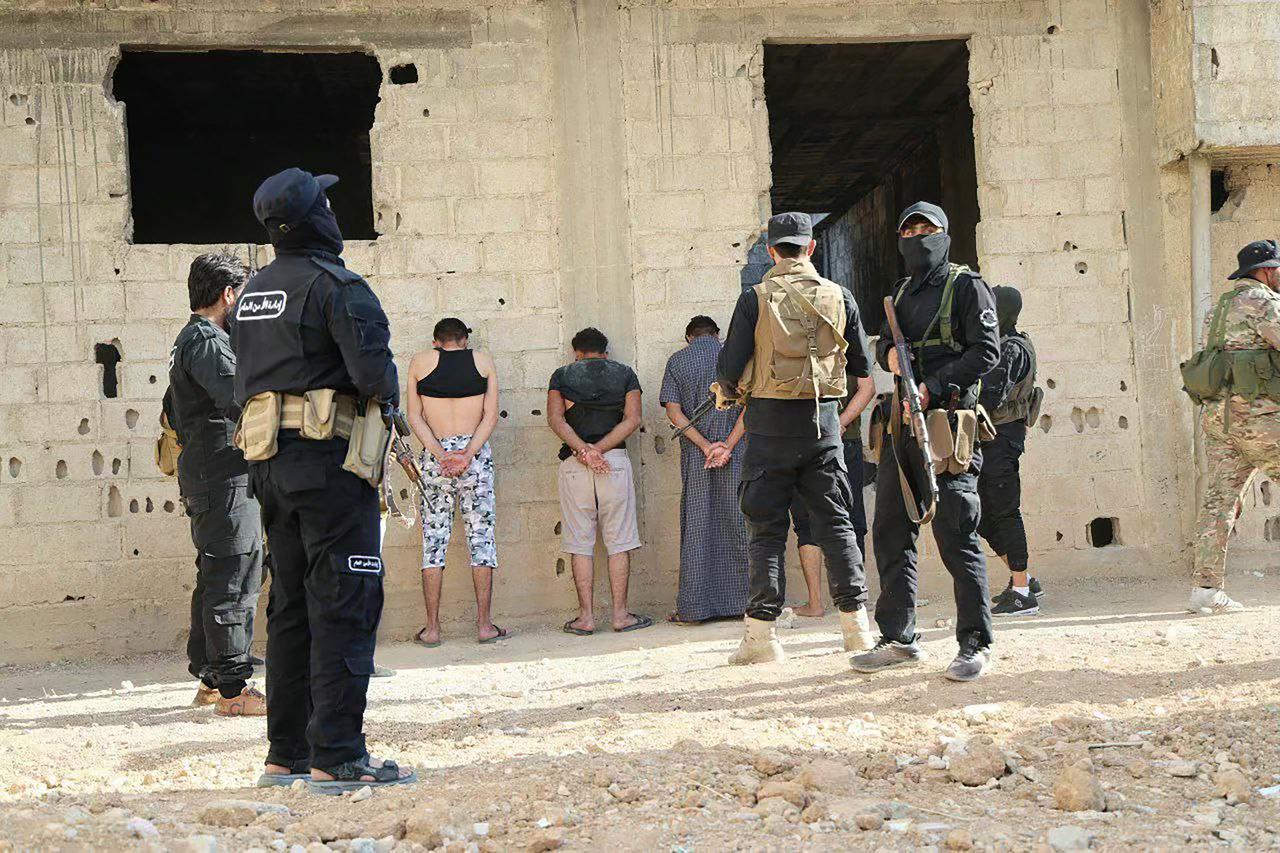
A firefight ensued, resulting in the neutralization of the motorcycle driver who had transported the first bomber and was preparing to deliver the second bomber to Sayyida Zeinab shrine. The second individual was wounded during the confrontation.
Following interrogation of the second suicide bomber, authorities discovered the terrorist cell's main hideout location. The subsequent raid led to the arrest of cell leader al-Jumaily, who confessed to four additional hideouts and weapons and explosives warehouses belonging to the organization.
All identified locations were raided, resulting in additional arrests and prevention of a motorcycle bombing planned to target civilian gatherings in the capital.
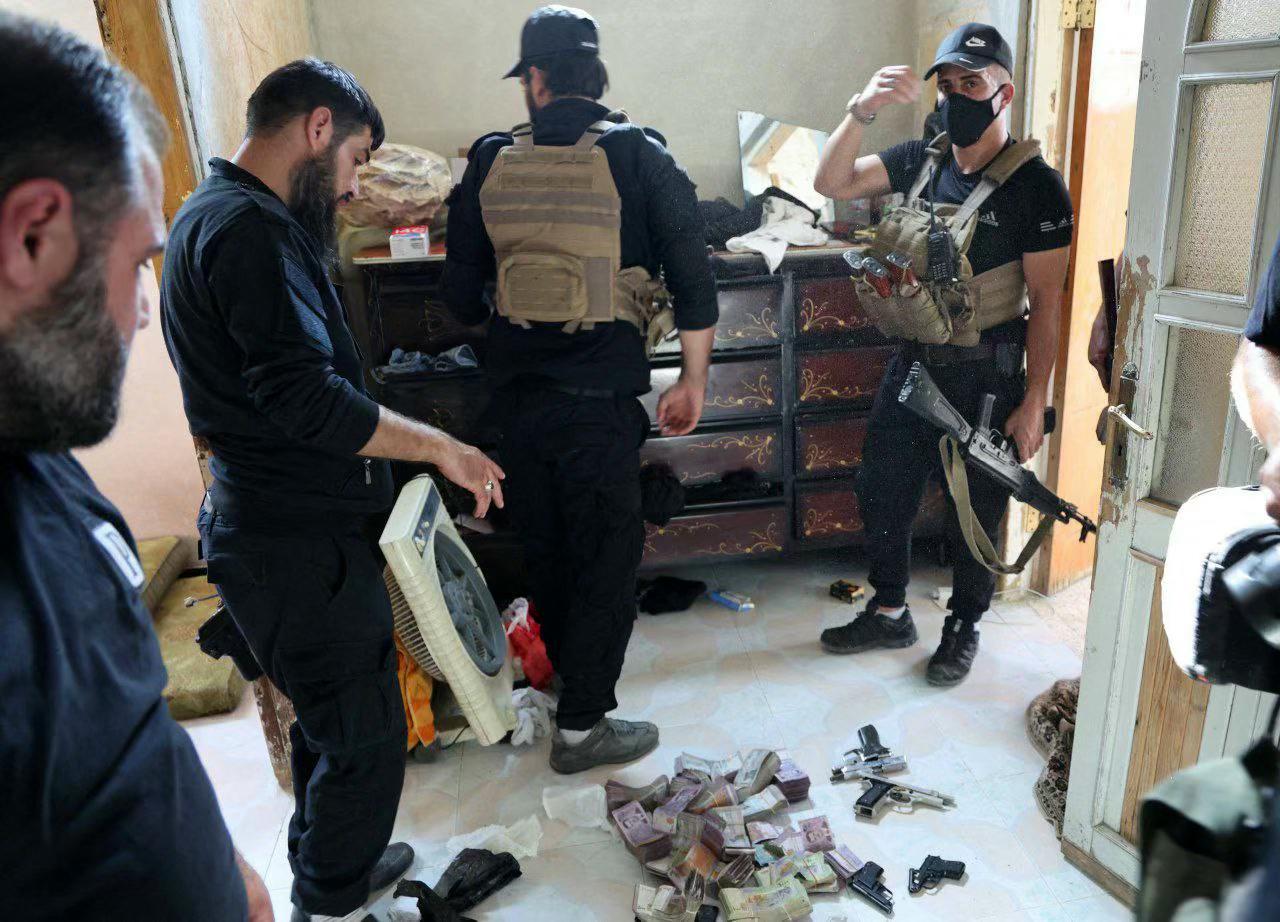
The attack drew widespread international condemnation and expressions of support for Syria's transitional government.
U.N. Secretary-General Antonio Guterres "strongly" condemned the "terrorist attack" and called for a "full investigation," while expressing support for the Syrian people's "pursuit of peace, dignity, and justice."
The European Union's External Action Service described the attack as "a grave reminder of the need to intensify efforts against the terrorist threat and to ensure the enduring defeat of Daesh and other terrorist organizations." The E.U. reaffirmed its support for Syrian transitional authorities' efforts to ensure nationwide security.
President Recep Tayyip Erdogan condemned the "heinous terrorist attack" and emphasized that Türkiye "will continue to support the Syrian government's fight against terrorism." Erdogan stressed that the attack aimed to destabilize peace and security in Syria and the broader region.
The United States condemned what State Department spokesperson Tammy Bruce called the "brutal and cowardly attack," urging the Syrian government to bring perpetrators to justice and ensure security for all Syrians, including religious and ethnic minorities.
The U.S. expressed continued support for Syria's government as it fights against destabilizing forces.
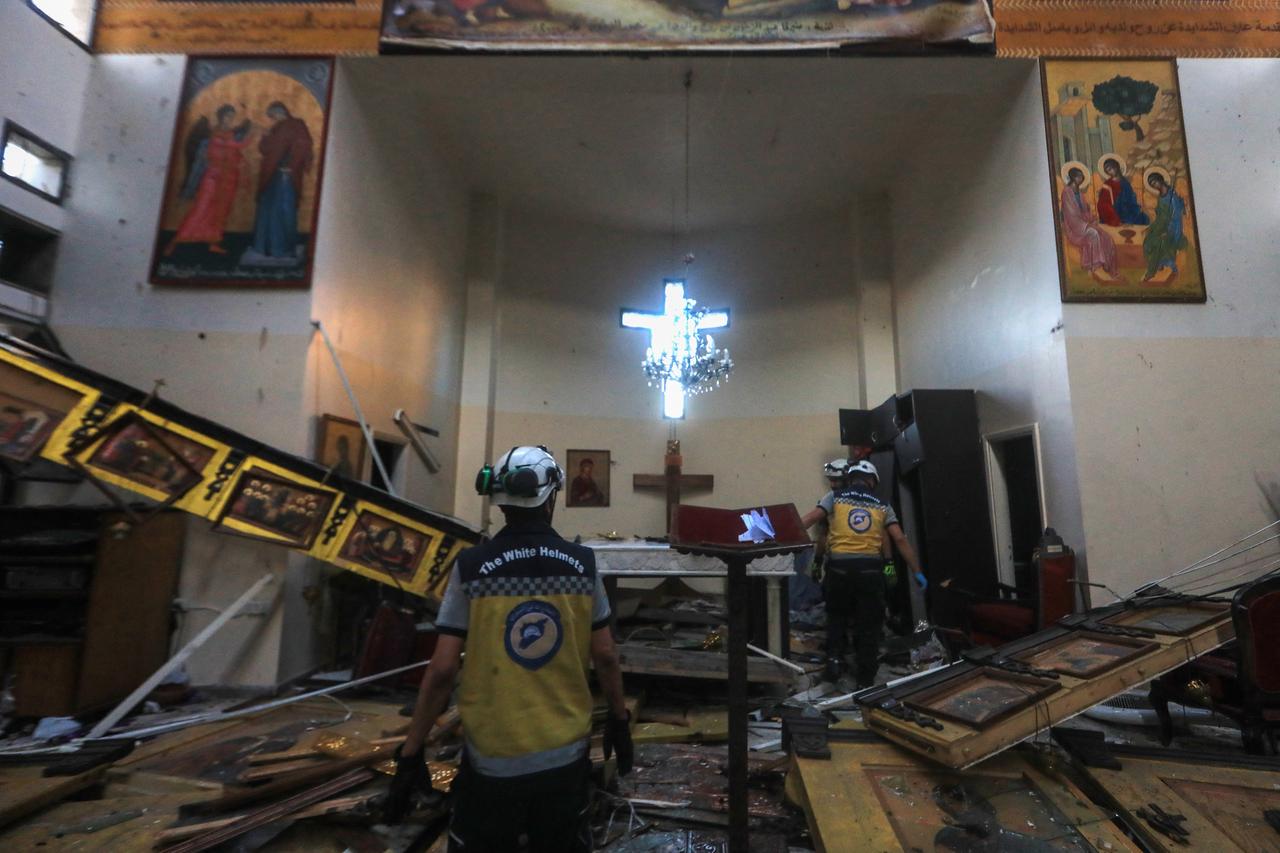
Saraya Ansar al-Sunna first emerged publicly on February 1, 2025, claiming responsibility for killing approximately 12 Alawites in Hama several days earlier. However, the group was actually formed in June 2024, approximately six months before Assad's fall, in Idlib by Hayat Tahrir al-Sham (HTS) defectors and operatives aligned with Huras al-Din (HaD), an al-Qaida affiliate.
While Saraya Ansar al-Sunna claimed responsibility for the attack through its Telegram channels, Syrian authorities maintain the operation was carried out by an official Daesh cell.
The terrorist organization, which translates to "Squadrons of the Supporters of the Sunna," issued statements claiming the attack was a response to what it called "provocations by the Christians."
The Damascus church attack follows earlier security operations, with Syria's Interior Ministry announcing the uncovering of Daesh cells in rural Damascus on May 26. During that raid, authorities seized light- and medium-sized weapons, indicating ongoing counter-terrorism efforts by the transitional government.
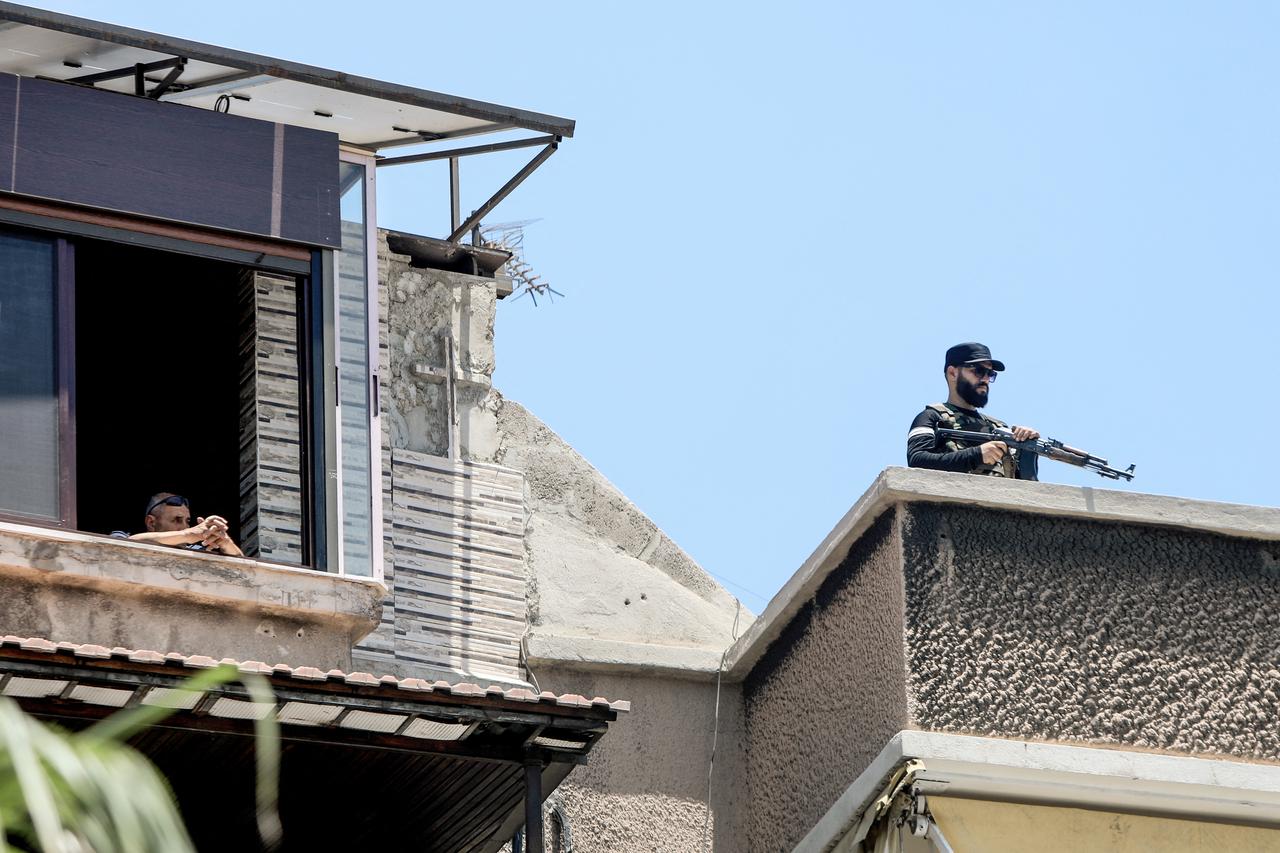
The Interior Ministry stressed that "Syria was and remains a land of tolerance, brotherhood, and a beacon of civilization, and terrorism will find nothing but disappointment."
Officials emphasized their rapid identification of the cell through intelligence sources and technical evidence, demonstrating the transitional government's commitment to protecting all Syrian communities.
Since Assad's fall in December, Syria's security services have continued pursuing individuals accused of involvement in crimes, human rights violations, and terrorism-related activities.
Ahmed al-Sharaa, who led anti-regime forces to oust Assad, was declared president for a transitional period in January.
The terrorist group's key figures include Abu Aisha al-Shami as leader, who has recently stopped issuing public statements, and Abu al-Fath al-Shami, who refers to himself as "Doctor".
In an interview with An-Nahar, Abu al-Fath al-Shami confirmed the organization's existence. According to the unconfirmed reports, it's being claimed the terrorist group has approximately 1,000 members.
He stated that the group was established in Idlib before Assad's fall and operated in secrecy away from General Security oversight.
Since Assad's fall, Ansar al-Sunna has gained new recruits by pushing parallel agendas: extreme sectarianism with attacks on Alawites, Shia, and Christians, combined with hostility toward Ahmed al-Sharaa and Syria's transitional government.
The terrorist group's official has issued statements declaring Ahmed al-Sharaa an "infidel and tyrant," framing his government as an enemy. Abu al-Fath al-Shami told An-Nahar that "the priority of this stage is to strike the sects of apostasy."
Sectarian attacks blamed on the group have occurred in Latakia, Tartus, Homs, Hama, Damascus, and surrounding countryside. The organization has confirmed branches in Aleppo, Homs, Latakia, and Tripoli, Lebanon.
Abu al-Fath al-Shami confirmed to An-Nahar that the group has begun operations in Lebanon, noting, "being in Homs make it easy topave the way to get into Lebanon."
On Nov, 2019, Iraqi Military Intelligence foil a plot to target one of the mosques in Baghdad during Friday prayers. An AK chest rig loaded with explosives apparently belongs to a terrorist named "Abu Aisha Al-Shami," which now believed to be belong Abu Aisha al-Shami from the Saraya Ansar al-Sunna, it might be completely someone else, but it might be him as well.
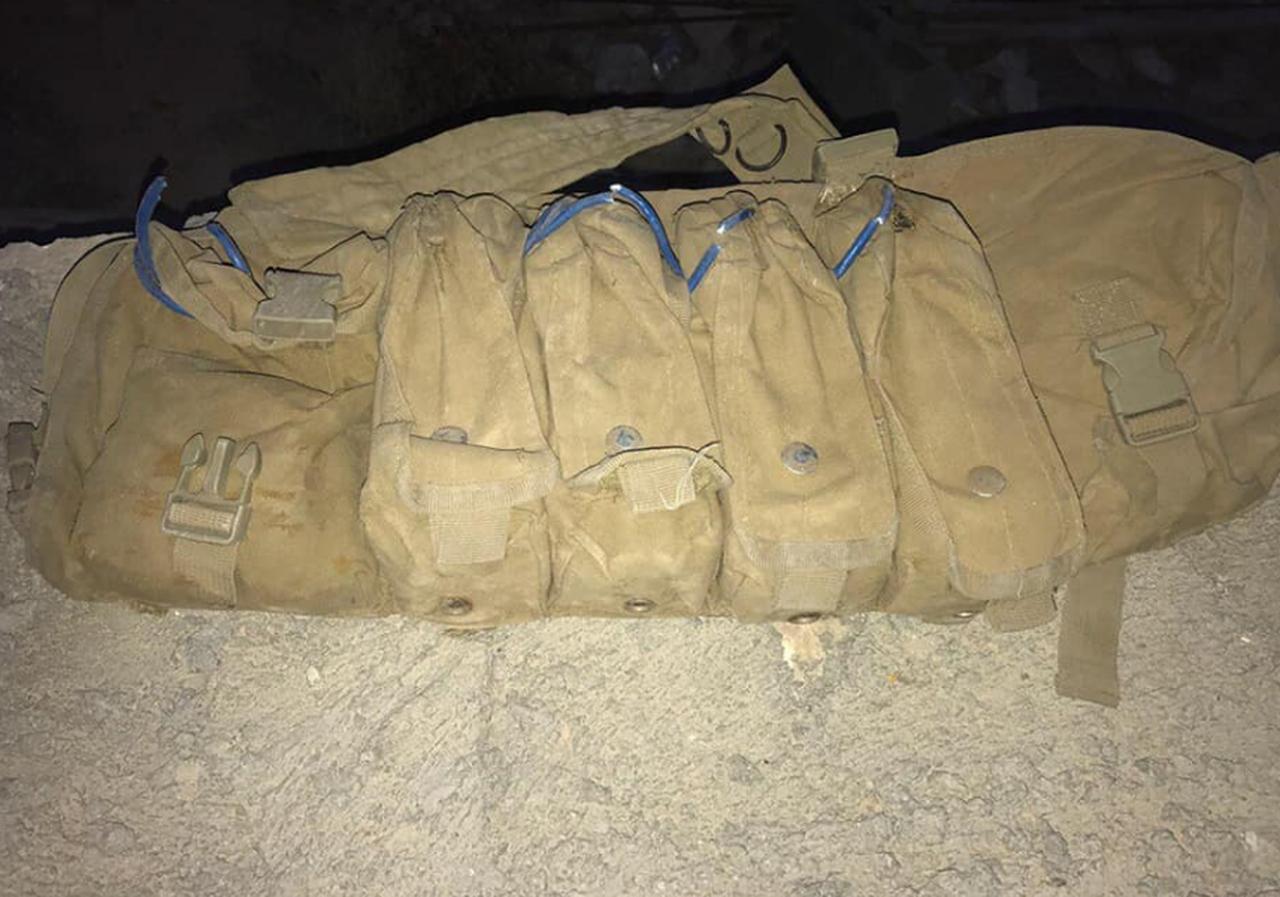
Syria analysts describe the terrorist group as "voluntarily murky" with limited available information except their Daesh-aligned ideology, making them a significant security threat for the transitional government as it attempts to establish stability and protect minority communities.
The false claims between the terrorist group Saraya Ansar al-Sunna and Daesh attribution highlight the complex landscape in post-Assad Syria, where multiple terrorist organizations with overlapping ideologies compete for influence while targeting the same thing...disturbing Syria and the region's long-needed peace.